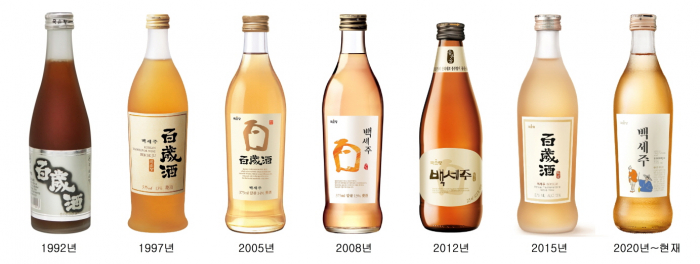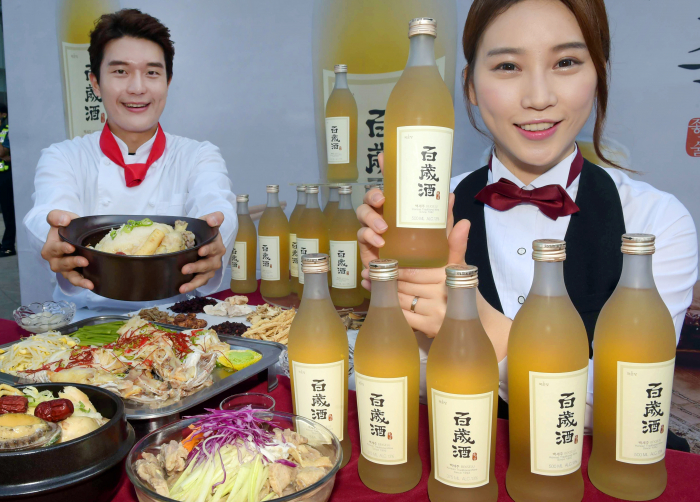Traditional Korean wine Bekseju sells 700 mn bottles
The wine made from rice, yeast and 12 oriental herbs is being exported to 50 countries
By May 04, 2022 (Gmt+09:00)
LG Chem to sell water filter business to Glenwood PE for $692 million


KT&G eyes overseas M&A after rejecting activist fund's offer


Mirae Asset to be named Korea Post’s core real estate fund operator


StockX in merger talks with Naver’s online reseller Kream


Meritz backs half of ex-manager’s $210 mn hedge fund



South Korea's traditional winemaker Kook Soon Dang Co. has sold a total of 700 million bottles of its flagship Bekseju since its launch in 1992 as it became a popular drink suitable for Korean dinners.
The cumulative number is equivalent to the average daily sales of 64,000 bottles over the course of 30 years both at home and abroad, the company said on Tuesday.
Bekseju means a healthy rice wine to be enjoyed for a long time until the age of 100. It is made from glutinous rice, yeast and enzyme, along with 12 oriental herbs including ginseng, ginger and cinnamon.
It is brewed and fermented in a patented way based on the traditional Korean wine brewing formula dating back to the Goryeo Dynasty between 918 and 1392. Powdered rice and room-temperature water are used to brew the drink, without applying high heat.
Its alcohol content of 13% is similar to that of conventional wines made from grapes but lower than the average of 15-20% for soju, a distilled spirit that originated in Korea as well.
Bekseju is the first Korean alcoholic beverage to be certified as a cultural product that represents the country and is credited to lead the popularity of traditional Korean liquor.
The traditional drink, which Kook Soon Dang claims is Asia's No. 1 herbal wine, is now being exported to 50 countries.

To promote the new drink in the first few years of release, the company had implemented tailored marketing for restaurants in suburban areas, rather than relying on public advertising.
Thanks to the so-called guerilla marketing campaigns, Bekseju went viral despite its high price relative to soju. Consumers on tight budgets enjoy the rice wine by mixing it with other drinks such as soju, beer or fruit wine to make a 1:1 blend.
To appeal to the environmentally-conscious younger generation, Bekseju has switched to transparent eco-friendly glass containers and converted the Chinese characters of its name to Korean letters on the outside of the bottle.
A 375 ml bottle of Bekseju sells for around 3,500 won ($2.8) in Korean convenience stores, above the 2,000 won for a 360 ml bottle of soju and compared with the 2,000-4,500 won for a 500 ml can of domestic beer.
Write to Kyeong-je Han at hankyung@hankyung.com
Yeonhee Kim edited this article
-
 Food & BeverageShinsegae to resume soju business targeting Southeast Asia
Food & BeverageShinsegae to resume soju business targeting Southeast AsiaMay 04, 2022 (Gmt+09:00)
2 Min read -



